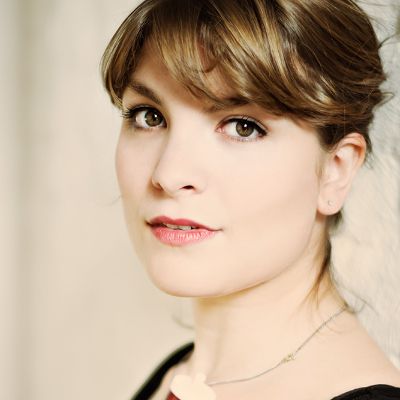A pseudo-cinematic turn of events forced the world renowned Brodsky Quartet to pull out all the stops for their concert in Utrecht last Thursday evening. Continually in demand as interpreters of the standard string quartet repertoire as well as proponents of new music commissioned by living composers, the quartet has accumulated a wealth of original manuscripts for their personal catalogue. Prepared to showcase their range, the group created a “Wheel of 4Tunes”, a musical “Wheel of Fortune” which presents a program of four works with the possibility of 10 works per space. It would have been quite the adventure had it not been for the unwitting thief who stole the group’s suitcase full of scores. Over 40 works were left in a car during the group’s dinner in Haarlem earlier this week; within an hour not only the ensemble but ten other victims were robbed on the same level of the parking garage.
The group called an SOS to music publishers, librarians and composers to provide any available scores, in addition to making a plea to the thief to have pity and return them. When taking the stage Thursday night the severity of disappointment was palpable on the faces of the four musicians. Despite the ordeal, the group managed to accumulate four works for the purpose of the evening’s concert which corresponded with their original vision. Luckily enough for us the public, Schubert, Shostakovich, Theo Verbey (a contemporary Dutch composer), and Debussy were still on the menu!
In a way the personal loss suffered by the group opened up a new side of the quartet which probably wouldn’t have been experienced otherwise. Candidly sharing previous horror stories of the business and circumstances which only the musicians can tell best, violist Paul Cassidy and violinist Daniel Rowland walked us through the story while still keeping the atmosphere light and enjoyable.
After opening with an overture by Franz Schubert, the group had chosen Shostakovich as the second choice on the “emergency program”. However, in the spirit of lightening the mood, the ensemble, thinking it had little left to lose, asked someone from the public to spin the wheel anyway to see what would have been performed had the music been available. The audience burst into applause as the wheel ticked ever so slowly to finally land on dear Mr Shostakovich; sure enough, the Quartet no. 8 was chosen as the second piece of the evening, one of the masterworks the group managed to salvage for the program! Taking it as a blessing from the concert gods, the Brodskys played on with ferocious vigor.
While listening to the Shostakovich, I imagined scene after vivid scene being presented before me, with undeniable atmosphere ranging from the utmost stagnation and destitution to wild and unabashed (dissonant) rage. It’s an intense piece to experience live. By the way in which the Brodsky Quartet has honed its interpretation after decades of playing this repertoire, one gets the impression that this performance could be the only one and you’d be quite satisfied with their rendition for the rest of your life. In fact, back in the 1970s, the group was so adamant to play Shostakovich’s work, not being readily available outside the Soviet Union at the time, they wrote their own handwritten manuscripts from radio broadcasts.
After reeling from the effects of the Shostakovich and a brief intermission mid-concert, the quartet took the stage once more to present the first-ever Dutch performance of Theo Verbey’s Spring Rain. Yet another atmospheric gem capturing the most well-known facet of Dutch weather, Verbey’s work was written specifically for the Brodsky Quartet. Sprinkled with light dropping effects and a sonorous violin melody above, the work is a microcosm of a storm taking place on stage.
Claude Debussy’s Op. 10 rounded out the program for the evening, harking back to images of impressionism. This year marks the 150th anniversary of Debussy’s birth, a milestone only the living can cherish. The Brodskys’ treatment of such a work is expressive to a science, with the crying resonance of Jacqueline Thomas’ cello plucking the heartstrings of the public while the repetitive nature of the work eases changes of harmony to the ear.
Ever subtle and definitive in execution, the Brodsky Quartet showed their true colors as one of the world’s greatest string quartets, albeit under personal duress. As musical pioneers of cross-genre collaboration, their work has extended beyond the boundaries of the canon of string quartets. Their recorded works with Elvis Costello are heralded as the greatest examples of genre fusion available in the marketplace today, bridging the gap between “classical” sonorities and public desires.


